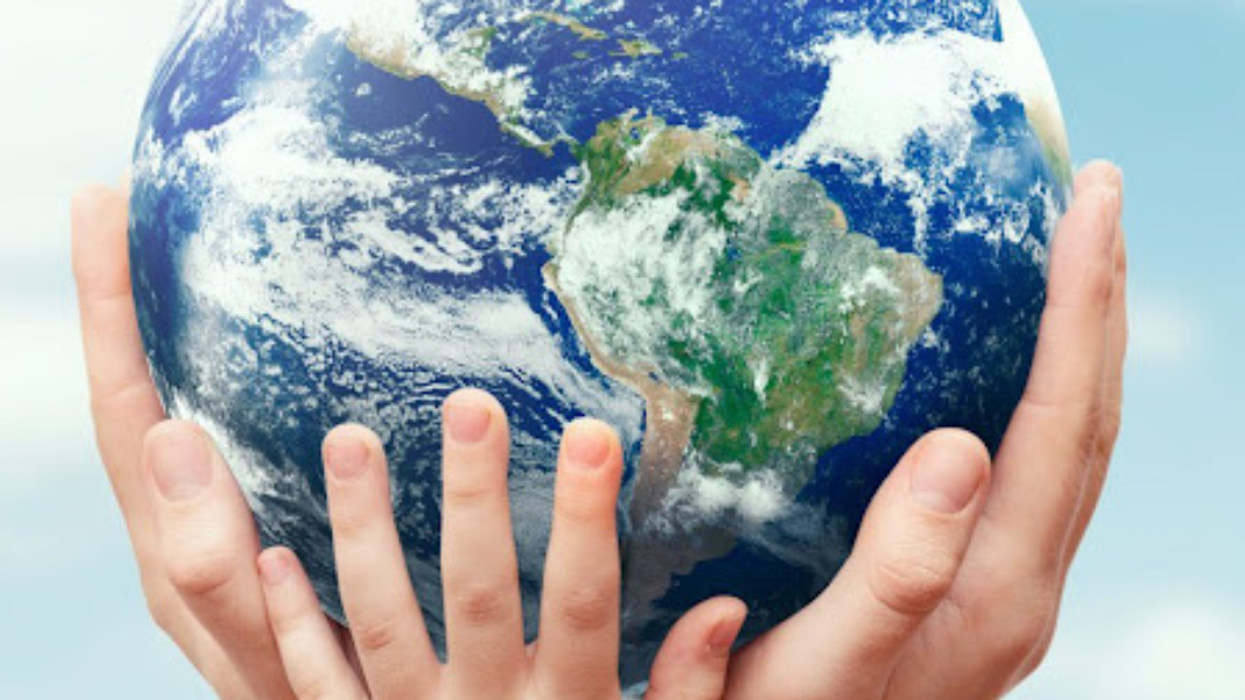Molineaux is the former co-publisher of The Fulcrum and president/CEO of the Bridge Alliance Education Fund.
Our society in the United States was heavily influenced by Calvinism.
The Calvinist form of Protestantism is widely thought to have had a major impact on the formation of the modern world. In other words, we and our culture were deeply impacted by the French philosopher, John Calvin, who lived in the 16th century, a time in which theocracies and monarchies were the most advanced form of governance. He was solving the problems created by these systems, which resulted in the consolidation of resources and power into the hands of a small group of people. Upward mobility was not allowed. Property ownership was unlikely and granted or withdrawn at the whim of the powerful person like a king or cardinal. Calvin imagined a better world where people could earn their way to a better life.
Eventually, Calvin's ideas spread throughout Europe, informed new Protestant faiths and led to the expulsion of Pilgrims into the "New World." The Pilgrims were the outliers of their time, believing in individual sovereignty and dignity. These rights were "earned" through an ascetic lifestyle of sacrifice for a future reward. Their philosophy threatened the ruling order of Europe as they disrupted social norms and challenged those with power to provide opportunity to the marginalized lower classes.
Today we find new versions of the same problems. Many of us believe in our personal sovereignty and find ourselves wanting to maintain or gain it. Yet the consolidation of power underway is undermining our freedoms. Each of us holds different perspectives on who actually represents "those in power," some saying global corporations, some the government and others still point to the ultra-wealthy, unaccountable billionaires.
In my mind, Calvinism has outlived its usefulness after 500 years. Meritocracy has been warped to protect the privileged. Democracy has been sold out to campaign donors or autocrats. Personal sovereignty is challenged with laws or policy about abortion, vaccines and immigration, just to name the obvious areas. As we navigate towards solutions to today's challenges, who are our new outliers? What are they visioning?
Are you a new outlier? Do you want to be one? I do. And I'd like a community of outliers to vision together. That's the point of the American Tales project.
The challenge before us is that outliers and extremists look very similar. Both break social norms and conceive of possibilities for our future, together. Outliers and extremists challenge those holding power; outliers use nonviolent means, extremists are open to using any tool to gain power, including violence or threats of violence.
I look within the futures offered by these would-be philosophers to see if they are peddling power-transfer or power-sharing. Outliers look for new norms to share power; including those who are marginalized. Extremists push for new norms that allow them to consolidate power under the guise of "protection."
Under democratic governance structures, people enjoy freedom to believe as they choose, speak freely and advocate for their beliefs. Individuals like Susan B. Anthony and Elizabeth Cady Stanton led the movement giving women the right to vote, and were called “extremists," in their time. They were actually outliers, calling on the men in power to include women. Another “outlier,” Frederick Douglass corresponded with and influenced President Abraham Lincoln on matters of racial equality. Douglass's ideas on human dignity resonated with Calvin's earlier ideas of meritocracy and abolition was popular within Calvinist-based faiths as many sought to improve their own lives through their merit.
Other “extremists” brought us witch trials, McCarthyism and the Holocaust. These cultural phenomena were based in fear of "losing something." Loss of economic freedom, social standing or influence led to persecution of the out-group. It's a tactic from the dictator's playbook that was later serialized as "How to Become a Tyrant." These examples, with the benefit of hindsight, demonstrate the peril we face when we operate from fear of change.
Given the societal impulse to label anyone outside of the mainstream “extreme,” how can we better distinguish and then support outliers who are advancing worthy causes? (adapted from this Living Room Conversation on Democracy, Outliers and Extremists)
A better outcome is to participate in visioning a change you would like to live into, that allows others freedom to live into their own version of the future. I invite you to participate with me!
Who are the outliers or extremists you are aware of? Do you follow them? How do you assess their relationship with power?
This piece was originally published on American Tales.




















Trump & Hegseth gave Mark Kelly a huge 2028 gift